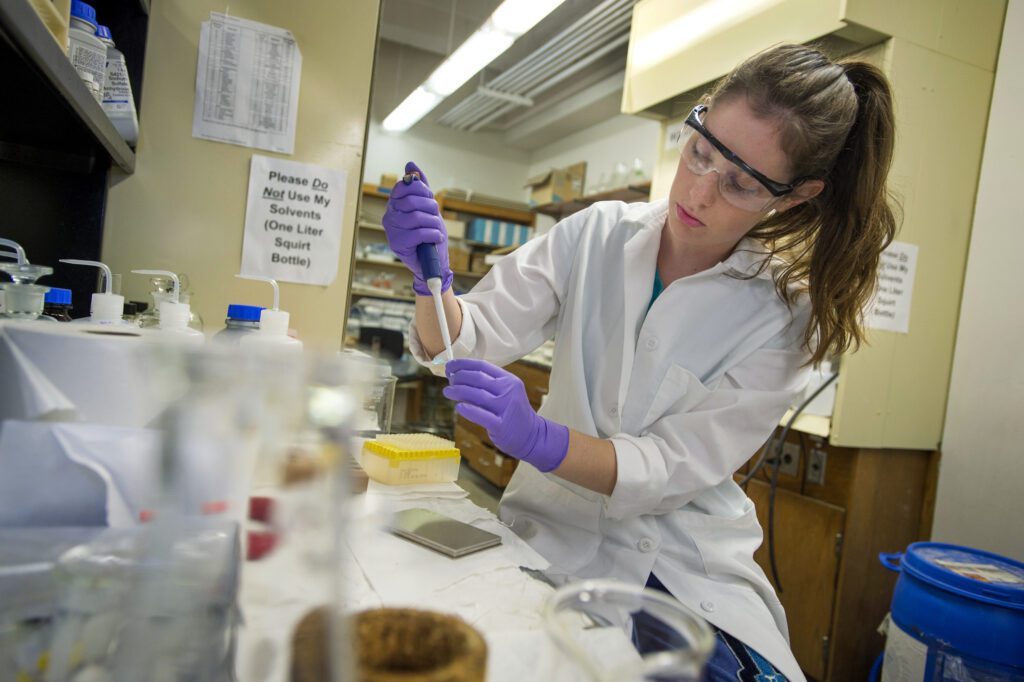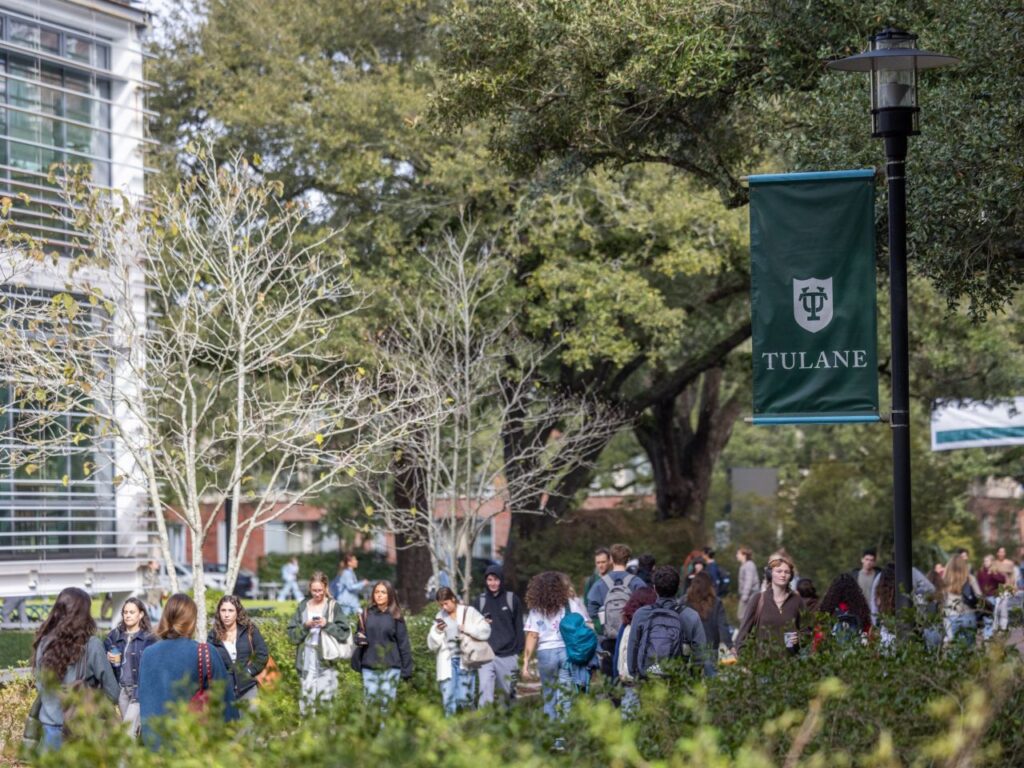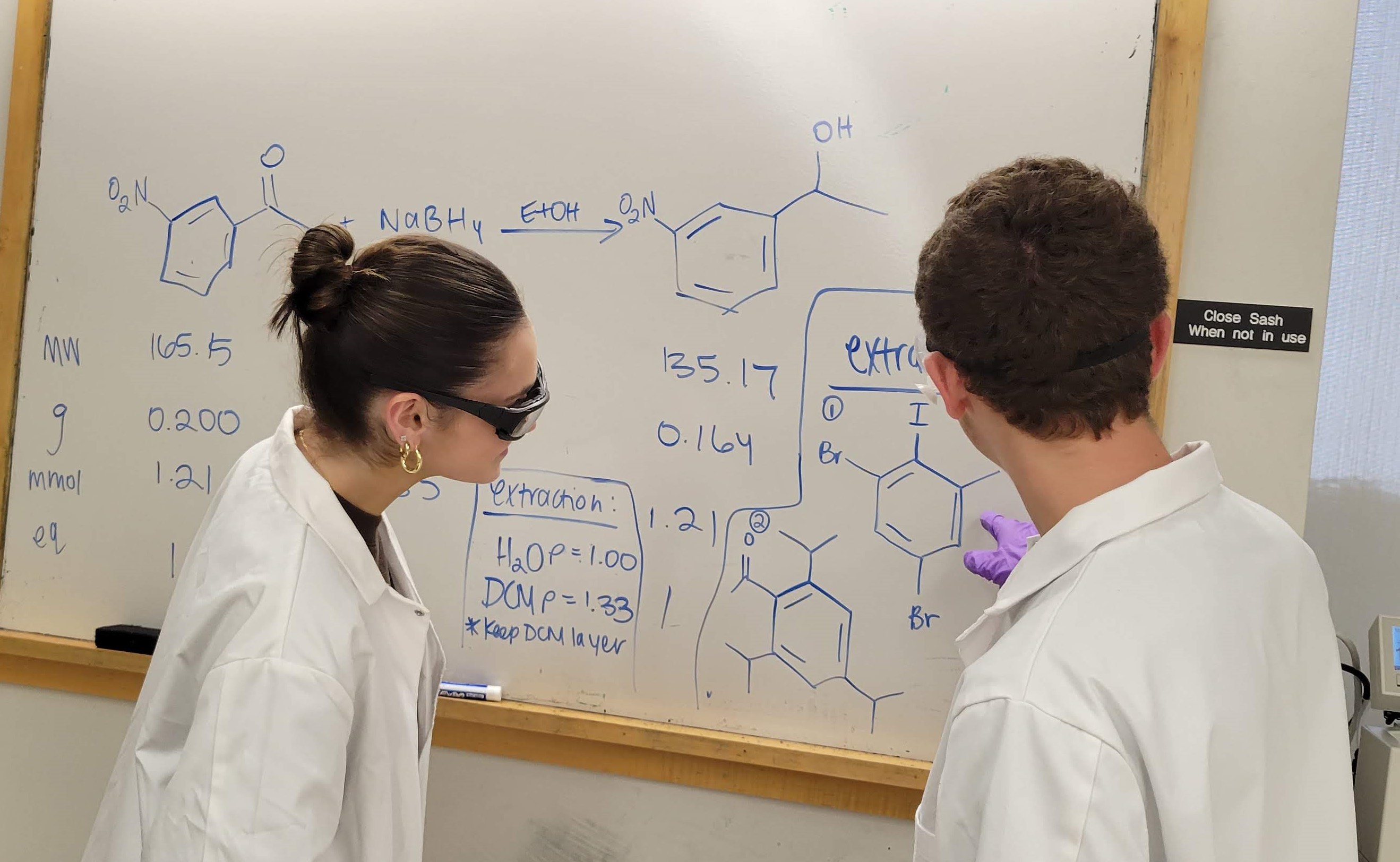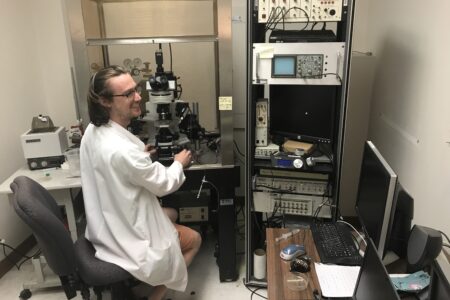Since 1834, the Department of Chemistry at Tulane University has steadily evolved its research focus and curriculum to reflect growth in the discipline. Educationally the mission has been to provide students from all over the world with top-tier training that results in meaningful and successful careers for its graduates at all levels. Achieving this requires having faculty that are forward-thinking chemists and scientists able to pass on these characteristics to students.
The department is undergoing a major makeover of its research faculty and infrastructure to reinvigorate its educational mission. Recent upgrades in critical instrumentation include addition of 400 and 600 MHz multinuclear NMR spectrometers and a state-of-the-art MALDI TOF mass spectrometer with TOF-TOF capabilities. Much of the department’s research is shifting towards sustainability in chemistry, focusing on areas such as renewable energy and medicine. To achieve this the department is bringing in new and experienced research faculty who can carry the department into the future of sustainability in the chemical sciences.

The Department of Chemistry at Tulane University adds assistant professors Daniel Straus, Wenxiao Guo, and Alex McSkimming to the faculty. Source: Tulane University
A brand-new lineup
Over the past three years, the department has added a group of highly active young chemists. Among these is Assistant Professor Daniel Straus, whose research focuses on the synthesis and characterisation of optical, electronic, and magnetic materials. Winner of the 2021 Blavatnik Regional Award for Young Scientists in Chemistry, Straus now has his group operating at full speed after completion of renovations to the building (check out the Straus Research Group here). He and his students are working on finding new approaches for the development of magnetic and electro-optic materials, with additional research areas that include magnetism and superconductivity in cluster-based materials, chiral materials for optics and spin-polarised charge transport, and extending the organic-inorganic hybrid materials paradigm beyond halides to include oxides.
Just completing her first year at Tulane is Assistant Professor Wenxiao Guo, whose work encompasses electrochemistry, spectroscopy, and nanomaterials. The Guo Research Group aims to precisely control and understand electrochemical interfaces at the molecular level to unlock new insights into important environmental processes such as converting carbon dioxide into storable fuels. The group is off to a fast start in developing materials for creating unique interfaces for multi-electron redox processes and exploring the effectiveness of surface Raman spectroscopy to understand the chemistry in these systems.
Finally, recent National Science Foundation (NSF) CAREER Award recipient Assistant Professor Alex McSkimming is the most experienced of the lineup of new additions to the faculty. Recruited in 2020, the Australian took no time to set up his research group to focus on synthetic inorganic chemistry (visit the McSkimming Lab). Together with his team of four graduate students, he aims to develop creative and effective catalysts for the conversion of industrially important substrates such as carbon monoxide and nitrogen into useful products such as methanol, methane and ammonia.
While the department is fortunate to have added these three exceptional young faculty members, the search does not stop there. The department continues to make substantial investments in recruiting talented new faculty, aiming to bring in at least one new junior member to the developing sustainability programme and one more senior figure to address fundamental issues linked to medicinal chemistry.

Tulane University is adding more talented academics to its Department of Chemistry. Source: Tulane University
Small programme, big ideas
Despite its small size, the department offers many of the resources typically found in a large university, particularly in terms of collaborative opportunities. This highly collaborative atmosphere encourages interaction with faculty with whom you can discuss new ideas, develop innovative research strategies, and work under their mentorship. You can even collaborate with faculty and peers from other research groups to gain a different view on your project.
“The department is moderately sized, allowing for a mix of individualised attention and collaboration amongst peers,” says student Addison Fraker. “I have access to equipment and chemicals that I need and advice from great professors.”
At the moment, Fraker is working on a collaborative project with the Schmehl and Donahue groups to explore hydrogen evolution. “Through collaborations, we are able to build our ideas,” she adds.
The community is vibrant and with little hierarchy – something PhD candidates appreciate. They are supported from day one, with faculty engagement that’s both personal and purposeful. To PhD candidate Layla Qaism, all of this come together to make her feel like the sky is the limit.
“The programme is remarkably flexible, the university offers distinctive leadership opportunities, and the professors are not only brilliant but deeply motivated,” she says.
Working on a day-to-day basis with faculty is a big advantage, academically and personally. Uththara Rathnaweera, a student of organic chemist Nathalie Busschaert, notes “[My mentor] is available at any time whenever we need to discuss anything. She encourages us to think about problems from different angles which really helps us to solve research problems.”
Follow Tulane University on Facebook, Instagram, LinkedIn, TikTok, and X.













